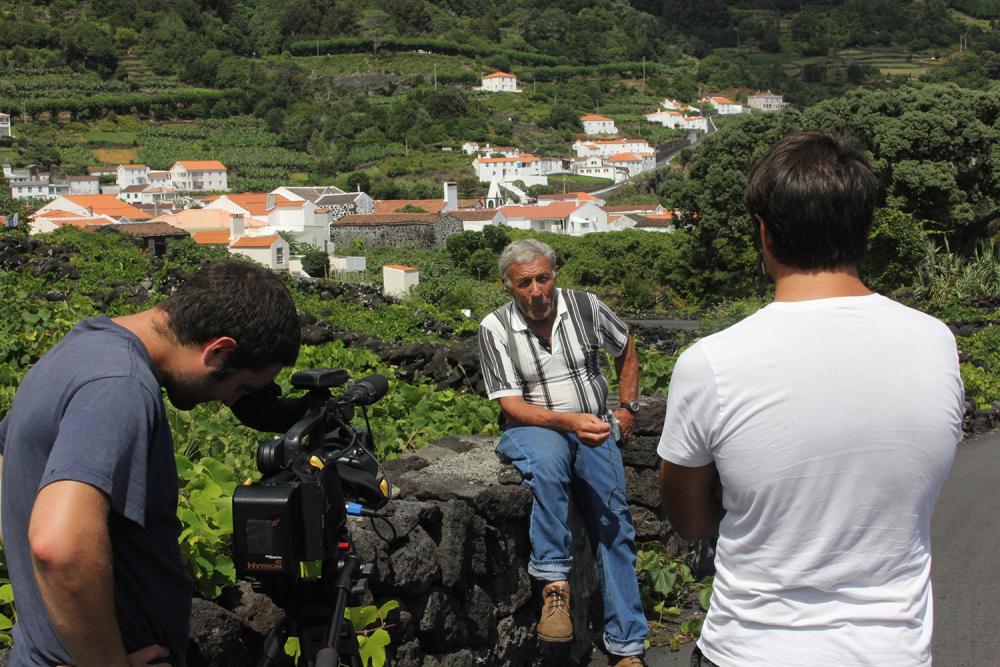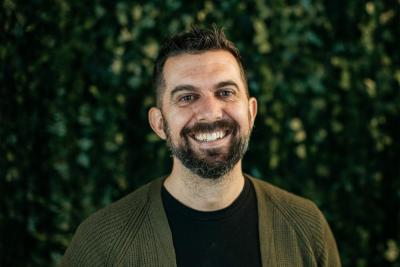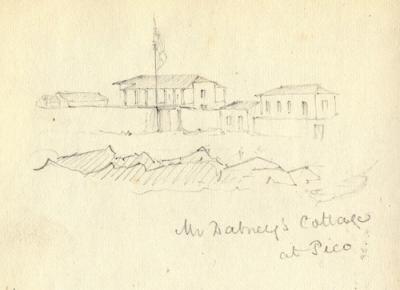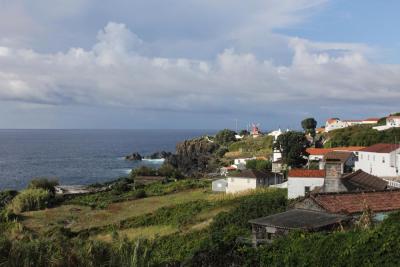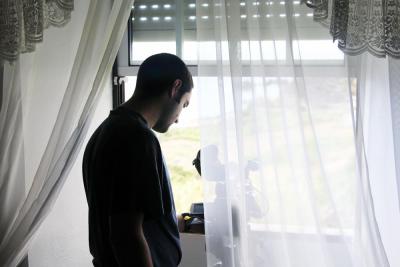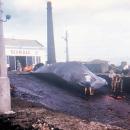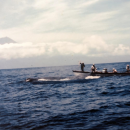From across the Atlantic, two residents look to share tides of history

For documentarian Nick Francis and author Joel Silveira Avila, the Azores aren’t just the subject of their latest projects — they’re part of who they are. Telling their stories through the lens and pen, together, they’ll explore the history of the islands at the New Bedford Whaling Museum Thursday, April 17.
Born in the Azores, Silveira Avila emigrated to the United States with his parents at the age of 7 in 1963. He attended New Bedford Public Schools and eventually UMass Dartmouth and has lived in town for the last 35 years.
After he retired from Information Technology seven years ago, he was encouraged to “stay active” and opted to begin writing his book, “Shades of Black and Gray – an Inquiry into the Island of Pico and its History,” in 2019.
Throwing himself into the research and writing, Silveira Avila ended up with a 1,000 page manuscript and a need for a lot of red ink. “Once I started writing about a topic, I couldn’t stop,” he said.
Looking for ways to cut down, he opted for a question and answer format and limited the book to 40 topics, including discovery, settlement, religion, whaling, winemaking and emigration from the 15th century to the present day.
He said the book explores “how rich that history was and the events that unfolded both in Europe as well as the U.S. that affected the islands.”
After five years of writing and editing, the book was published by Bruma Publishers, a division of Portuguese Beyond Borders Institute at California State University.
Francis grew up going to his family’s big Portuguese parties, which showed him the value of community and culture. Though both his grandfathers were from the Azores, he didn’t get the idea to do a documentary until a friend at UMass Dartmouth proposed the idea.
After obtaining some grant funding, Francis and his team spent 2011 and 2012 developing “The Last Azorean Whalemen,” filming all the necessary clips over in the Azores.
“When we got there and started listening to these stories, it was less about the connection to New Bedford and more about the connection to one another and retelling of survival,” Francis said.
The film explores the lives of septuagenarian whalemen from Pico and Faial, capturing the natural beauty of the Azores and providing insight into the whaling industry that once thrived there. Through the eyes of these whalemen, the film examines their experiences hunting whales, the methods they used and their adaptation to life after whaling was outlawed in the 1980s.
The outlawing of whaling “took away a way of life for them in some regards,” he said, highlighting how many did whaling as a second job to provide for their families. He also noted how the entirety of the whale was used in the Azores, which wasn’t the case in the places in the United States, such as New Bedford.
He added, “It’s an amazing, loving, warm culture full of food, stories and community.”
By the time it was completed in 2017, the shift in the documentary's angle made it feel “much more important and much more powerful as a result,” Francis said.
Both Francis and Silveira Avila spoke on the language barriers that posed challenges for their projects.
Francis said there were different slang words and dialects that took six individuals to help sort out for the translation.
For Silveira Avila, although he knows a good amount of the language, the older texts had words that were “sort of obscure,” so he had begun looking them up one by one in the dictionary, which was quite the tedious process.
Looking back, he said his favorite part of writing the book was tracking down the Dabney family cottage in the Azores. Misindentified in another book, it took a number of interviews before Silveira Avila was able to find the summer home of the consuls known as “The Priory.”
Francis said filming 15 years ago, some of the interviewees have since died, noting he feels honored to have the opportunity to be a part of preserving their legacy.
“Just telling the story and being a part of it I think touched me in a way that I wasn’t expecting,” he said.
Join the two Dartmouth residents for a 6 p.m. discussion at the museum — doors open at 5:30 p.m. Tickets are $5 for members, $10 for non-members, and can be purchased on whalingmuseum.org.



